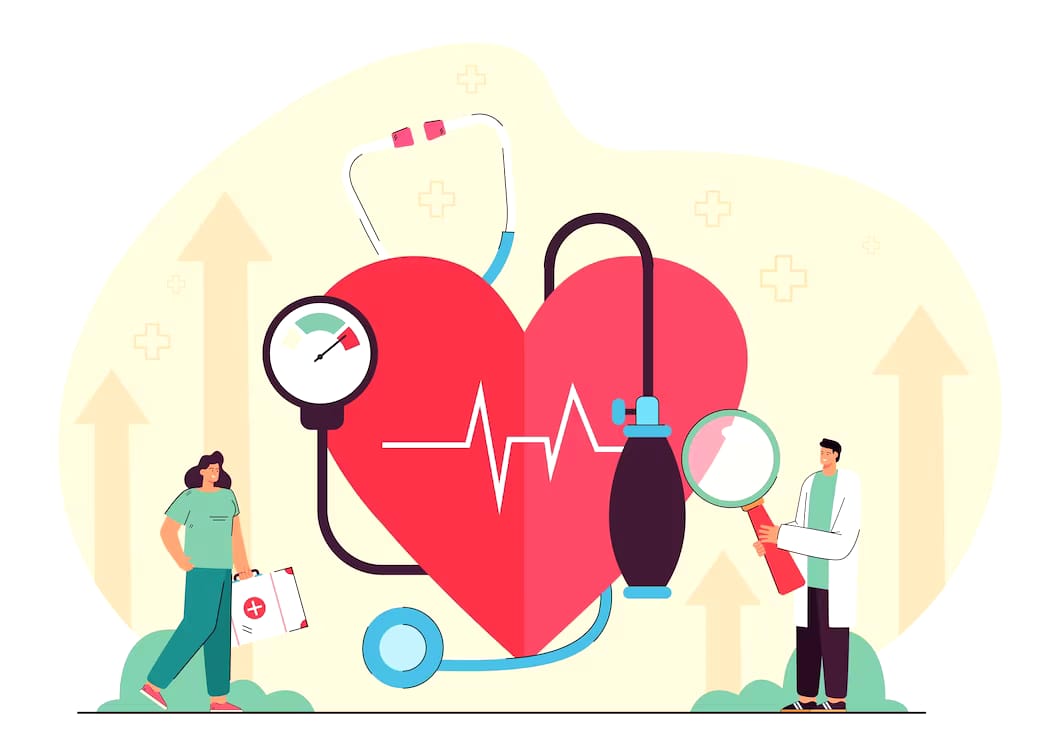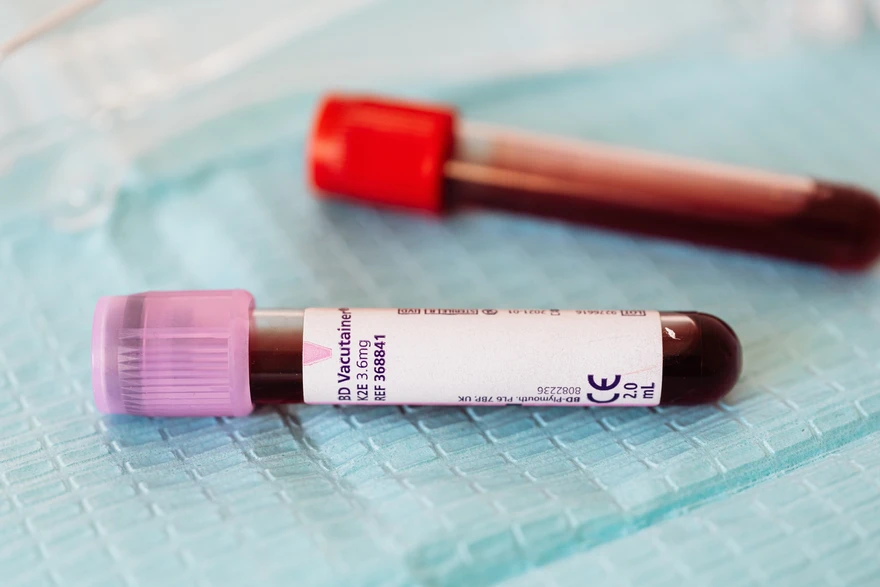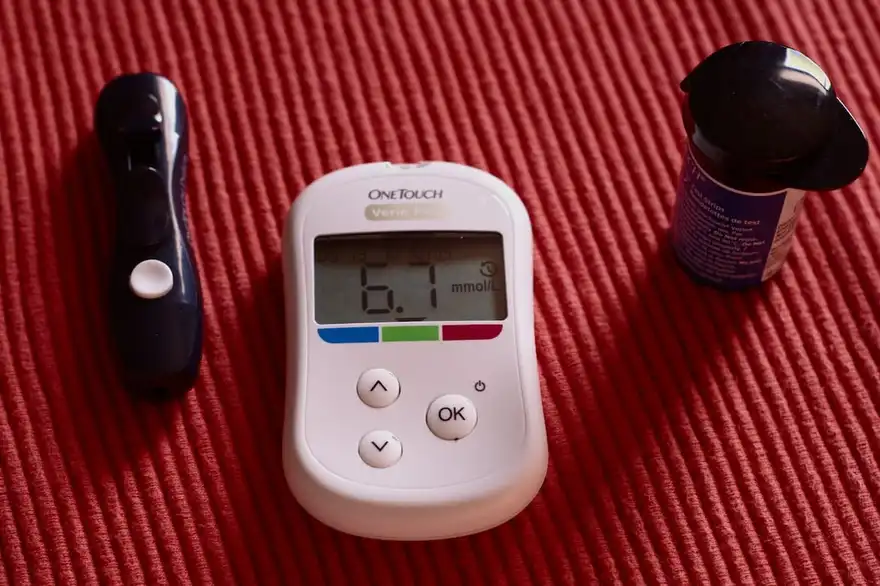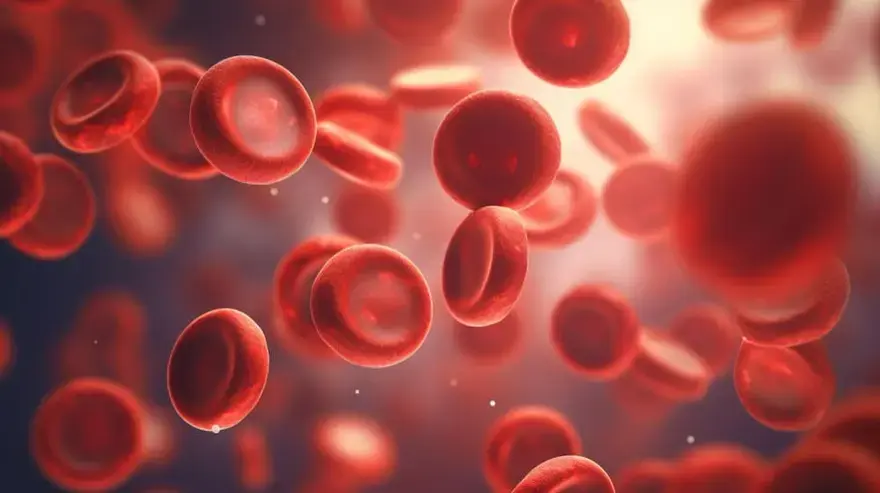HDL cholesterol
HDL Cholesterol: How to Increase Good Cholesterol Levels
If you are concerned about your heart health, one of the most important things to monitor is your high-density lipoprotein levels. HDL, or high-density lipoprotein, is often referred to as 'good' cholesterol because it helps remove excess cholesterol from your bloodstream and lower the risk of heart disease. HDL cholesterol carries the low-density lipoprotein (LDL)also known as 'bad cholesterol' to the liver where it can be broken down and eliminated from your body. A healthy level of HDL in your blood has been linked to a reduced risk of heart disease and stroke. The normal range for HDL cholesterol is between 40-60 mg/dl for men and 50-70 mg/dl for women. However, many people struggle to maintain HDL in the normal range. Fortunately, there are plenty of strategies you can use to boost your HDL cholesterol and keep your heart healthy! In this article, we'll explore some effective tips for increasing your HDL levels and achieving a healthier lifestyle overall. How Can We boost HDL cholesterol levels? Boosting HDL cholesterol levels is crucial in maintaining a healthy heart. HDL, also known as high-density lipoprotein, helps remove excess cholesterol from the bloodstream and transports it to the liver for processing and excretion. One way to boost HDL cholesterol levels is by incorporating healthy fats into your diet. Omega-3 fatty acids found in oily fish like salmon can significantly increase HDL levels. If you are vegan, then other sources of healthy fats for you include olive oil, avocados, nuts and seeds. Fibre-rich foods such as whole grains, fruits and vegetables are also essential in raising HDL levels. Soluble fibre specifically has been shown to improve lipid profiles by reducing LDL (low-density lipoprotein) while increasing beneficial HDL. Regular exercise has been proven effective in boosting HDL cholesterol levels. Even moderate physical activity like brisk walking for 30 minutes a day can make a difference. Incorporating these lifestyle changes into your daily routine will not only help boost your good cholesterol but promote overall heart health as well! Foods that help boost HDL cholesterol Foods that help boost HDL cholesterol are an essential part of a healthy diet. Incorporating these foods into your meals can not only increase your levels of good cholesterol but also improve your heart health. One food to consider is fatty fish such as salmon, mackerel and tuna. These types of fish contain omega-3 fatty acids which have been shown to raise HDL levels. Nuts like almonds and walnuts are another great option for boosting HDL levels. They are high in monounsaturated fats which have been linked to improved cardiovascular health. Adding fruits like berries, oranges and apples to your diet can also improve HDL levels due to their antioxidant properties. Antioxidants play a key role in reducing inflammation in the arteries which can decrease the risk of heart disease. Incorporating plant-based proteins such as beans and lentils instead of red meat into your meals has been shown to lower LDL (bad) cholesterol while increasing HDL (good) cholesterol. Fibre-rich foods like broccoli, carrots, onion, berries, bananas, apples, pears and barley are also known to lower LDL (bad) cholesterol. By making small changes to your diet with these foods, you can promote healthy cholesterol levels. Supplements that help boost HDL cholesterol Supplements can be a great addition to your diet when it comes to boosting HDL cholesterol levels. Here are some of the best supplements that you can take: 1. Niacin: Vitamin B has been found to increase HDL levels by up to 35%. However, high doses of niacin may cause flushing and liver damage, so always consult with your doctor before taking this supplement. 2. Omega-3 fatty acids: Found in fish oil supplements, omega-3 fatty acids have been shown to improve overall heart health and raise HDL cholesterol levels. 3. Fiber supplements: Soluble fibre can help reduce LDL (bad) cholesterol levels while simultaneously increasing HDL (good) cholesterol levels. You can find fibre supplements in pill or powder form at your local drugstore. 4. Plant sterols and stanols: These substances block the absorption of dietary cholesterol in the intestines, leading to lower LDL and higher HDL levels. Remember that while these supplements may be helpful for some people, they should never replace a healthy diet and exercise routine as the primary means for improving heart health. Always speak with your doctor before adding any new supplements to your daily regimen. Exercise and Its Effect on HDL cholesterol Regular exercise is not only good for your physical fitness but also beneficial in boosting HDL cholesterol levels. According to research, aerobic exercise such as running, cycling or swimming can increase HDL levels by 5-10%. Exercise helps to boost the enzyme that carries excess cholesterol from the arteries and back to the liver where it is broken down and removed from the body. Experts recommend at least 30 minutes of moderate-intensity aerobic activity on most days of the week for optimal health benefits. If you're new to exercising or have certain health conditions, it's best to consult with a doctor before starting any workout routine. Resistance training is another way to help boost HDL cholesterol levels. Strength exercises such as weightlifting and resistance band workouts have been shown to improve overall cardiovascular health by reducing inflammation in blood vessels. In addition, combining both aerobic and strength exercises has been found more effective than doing either one alone in increasing HDL cholesterol levels. Regular physical activity plays an important role in maintaining healthy HDL cholesterol levels which are essential for a healthy heart. Conclusion HDL cholesterol is an important factor in maintaining a healthy heart. By incorporating a few lifestyle changes such as consuming healthy foods, taking supplements and regular exercise, you can boost your HDL cholesterol levels and reduce the risk of heart disease. However, it's essential to consult with your doctor before making significant dietary or exercise changes. Remember that small modifications can make a big difference over time when it comes to improving your overall health and well-being. So start today by implementing some of these tips for boosting your HDL cholesterol levels and enjoying living a healthier life! If you want to book an HDL cholesterol test from the comfort of your home, you can depend on Metropolis Healthcare Labs. You can book the HDL cholesterol test at a Metropolis diagnostic lab near you or even book a home visit on our website. Contact us today to learn about our wide range of diagnostic tests and services.
Heart Health: Insights into Heart Disease and a Heart-Healthy Diet
Coronary heart disease is a major cause of death around the world. About half of cardiac arrests and most strokes happen to individuals whose cholesterol levels are normal. Cholesterol alone is not a good way to tell if someone will have a stroke. Today, a lot of healthy people die young. Most of them don't know their family history as a risk factor for early heart disease. This can put them at risk. In an exclusive interview with OnlyMyHealth, Dr. Ravi Kumar H.N., VP and Senior Pathologist at RV Metropolis Lab in Bengaluru, shares some tips on how to keep your heart healthy. He says that many new tests, such as coronary risk profiles, are available. However, people do only cholesterol or Lipid profile tests and take it for granted that they are normal. Numerous other factors contribute to early heart attacks. These include obesity, lack of regular exercise, quality sleep, sedentary lifestyle, poor eating habits, anxiety, stress, smoking, high blood pressure (BP), and diabetes mellitus (DM)." How to Maintain a Healthy Heart? When it comes to maintaining a healthy heart, there are three key factors that you need to keep in mind: high blood pressure, diabetes, and your family's health history. Here's a closer look at each of these factors: High blood pressure is one of the leading contributors to heart disease. To manage your blood pressure levels effectively, you should aim for a balanced diet that is low in sodium and saturated fats. Regular exercise can also help lower your blood pressure over time. Diabetes can damage the arteries and increase the risk of developing heart disease. If you have been diagnosed with diabetes or prediabetes, make sure that you manage it carefully by eating a healthy diet and exercising regularly. Knowing your family's health history is crucial as genetics play an important role in determining your risk for developing heart disease. If there are any instances of heart disease within your family then make sure that you inform your doctor about this so they can monitor you more closely. By taking steps to control high blood pressure levels, managing diabetes carefully and keeping track of your family's medical history, you can maintain your cardiovascular health over time! The Role of Cholesterol in Maintaining a Healthy Heart Cholesterol is a waxy, fat-like substance that is essential for the proper functioning of your body. However, having high levels of cholesterol in your bloodstream can increase your risk of heart disease and stroke. There are two types of cholesterol: LDL (low-density lipoprotein) and HDL (high-density lipoprotein). LDL cholesterol is often referred to as "bad" cholesterol because it can build up in the walls of arteries, leading to cardiovascular problems. HDL cholesterol, on the other hand, is known as "good" cholesterol because it helps remove excess LDL from the bloodstream. To maintain your heart health, it's important to maintain a balance between these two types of cholesterol. You can do this by maintaining a healthy diet low in saturated and trans fats and high in fruits, vegetables, whole grains, and lean protein sources like fish or chicken breast. If you have high levels of bad cholesterol despite making dietary changes, medications such as statins may be prescribed by your doctor to lower your risk for heart disease. It's important to speak with your healthcare provider about any concerns you may have regarding managing your blood lipid levels. The Role of Homocysteine in Maintaining a Healthy Heart Maintaining a healthy heart is essential for leading a happy and fulfilling life. By taking care of your blood pressure, managing diabetes, and being mindful of your family's health history, you can go a long way in preventing heart disease. But it's not just about these factors alone. You also need to pay attention to cholesterol levels and the role that homocysteine plays in maintaining a healthy heart. Homocysteine is an amino acid found in your blood that can damage your arteries when its levels become too high. This damage can lead to blockages and increase the risk of heart attacks or strokes. Maintaining lower homocysteine levels through diet or supplements such as folic acid, vitamin B6, or B12 may help reduce this risk. Conclusion Maintaining your heart health requires commitment and effort. Following a balance between good and bad cholesterol is ideal for a good and healthy heart. It is also essential to maintain healthy homocysteine levels. It takes more than regular exercise and eating right; it demands consistent monitoring of all aspects of your lifestyle along with medical intervention when necessary. But by making small changes over time, like cutting out processed foods or reducing stress levels, you can improve the overall quality of life while mitigating risks associated with cardiovascular disease!
 Home Visit
Home Visit Upload
Upload














1715579024.webp)

 WhatsApp
WhatsApp